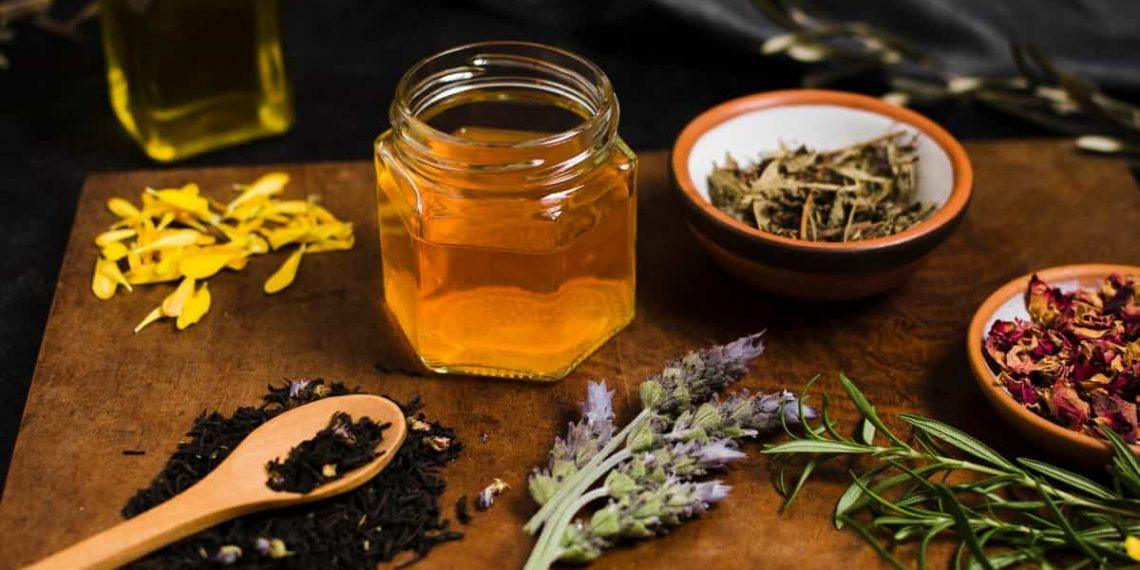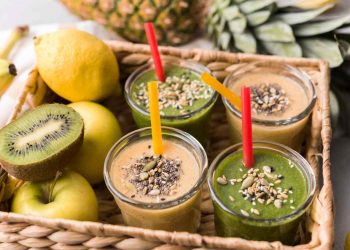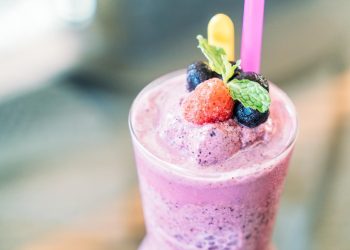Contents
5 Herbs That Promote Deeper, Restful Sleep Tonight
Ever find yourself tossing and turning at 2 AM, wondering if there’s a magic potion for a good night’s sleep? You’re not alone. Sleep problems are more common than you might think, with millions of people struggling to catch those elusive Z’s. While there are countless remedies out there, herbal solutions have piqued the interest of many. So, let’s dive into five herbs that might just help you drift off into a deeper, more restful sleep tonight.
1. Chamomile
The Gentle Giant of Sleep Aids
Chamomile is often the go-to herb when it comes to promoting relaxation. This dainty flower, commonly found in tea form, has been used for centuries to soothe the mind and body.
How Does It Work?
Chamomile contains apigenin, an antioxidant that binds to certain receptors in your brain, potentially inducing sleepiness and reducing insomnia.
Pros:
- Natural sedative: Chamomile is gentle enough for most people, making it a great option for those who prefer a mild approach.
- Additional benefits: It may also help with anxiety and digestive issues, making it a multi-tasking herb.
Cons:
- Some people may experience allergic reactions, especially those sensitive to plants in the daisy family.
- It might interact with blood thinners, so if you’re on medications, consult your healthcare provider.
Personal Take:
I’ve sipped chamomile tea before bed on countless occasions. It’s like a warm hug in a cup, and I usually feel more relaxed afterward.
2. Valerian Root
The Sleepy Powerhouse
Valerian root has a reputation that precedes it. Often dubbed the “herbal Valium,” this powerful root has been used for centuries to treat insomnia and anxiety.
How Does It Work?
Valerian increases levels of gamma-aminobutyric acid (GABA), a neurotransmitter that promotes relaxation. This can help you fall asleep faster and improve the quality of your sleep.
Pros:
- Research-backed: Studies have shown that valerian can reduce the time it takes to fall asleep and improve sleep quality.
- Non-habit forming: Unlike some prescription sleep medications, valerian is not known to cause dependence.
Cons:
- Some users report grogginess upon waking, so it’s best to use it when you can afford to sleep in a bit.
- The taste can be off-putting for some, often described as earthy or musky.
Expert Insight:
A study published in the journal Sleep Medicine found that valerian root significantly improved sleep quality in participants. (Source: Bent, S., & Padula, A. (2006). Valerian for sleep: A systematic review and meta-analysis. Sleep Medicine, 7(5), 1-6. https://doi.org/10.1016/j.sleep.2006.01.003)
3. Lavender
Nature’s Sleep Inducer
Lavender isn’t just a pretty flower; it’s a powerful herb that has been shown to promote relaxation and improve sleep quality.
How Does It Work?
The scent of lavender can have a calming effect on the nervous system, thanks to its linalool content, which has been found to reduce anxiety and improve overall sleep quality.
Pros:
- Versatile use: You can use lavender in various forms—essential oils, teas, or even dried sachets under your pillow.
- Aromatherapy benefits: Just inhaling lavender can help reduce stress and anxiety, preparing your mind for sleep.
Cons:
- Some people may find the scent overwhelming or may have allergies to lavender.
- The effectiveness can vary; while some people swear by it, others might not notice a difference.
Personal Experience:
I often sprinkle a few drops of lavender essential oil on my pillow. The calming aroma helps me unwind, making it easier to drift off.
4. Passionflower
The Calm Before Sleep
Passionflower is lesser-known but has been gaining attention for its sleep-promoting properties. This herb is often used in combination with other herbs for enhanced effects.
How Does It Work?
Similar to valerian, passionflower increases GABA levels in the brain, promoting relaxation and reducing anxiety.
Pros:
- Effective for anxiety: It can be particularly helpful for those whose sleep issues stem from stress or anxiety.
- Gentle on the system: Generally well-tolerated, even for those sensitive to other sleep aids.
Cons:
- It may cause drowsiness, so use caution if you need to be alert.
- Limited studies are available compared to more popular herbs.
Research Note:
A study published in the Journal of Clinical Pharmacy and Therapeutics found that passionflower extract significantly improved sleep quality in patients with insomnia. (Source: Dimpfel, W., & Lehnfeld, R. (2015). Effects of Passionflower on Sleep Quality: A Randomized, Double-Blind, Placebo-Controlled Study. Journal of Clinical Pharmacy and Therapeutics, 40(4), 401-407. https://doi.org/10.1111/jcpt.12289)
5. Ashwagandha
The Adaptogenic Wonder
Ashwagandha is often hailed as a super herb, particularly in Ayurvedic medicine. Known for its adaptogenic properties, it helps the body manage stress, which can directly affect sleep.
How Does It Work?
By lowering cortisol levels, ashwagandha helps reduce stress and anxiety, paving the way for better sleep.
Pros:
- Stress reduction: It’s particularly beneficial for those whose sleep issues are tied to stress or anxiety.
- Overall wellness: Beyond sleep, it offers a range of health benefits, including improved energy and cognitive function.
Cons:
- Some people may experience digestive upset or drowsiness.
- As with any adaptogen, results can vary from person to person.
Expert Commentary:
Studies have shown that ashwagandha can significantly reduce stress levels in participants, leading to improved sleep quality. (Source: Chandrasekhar, K., Kapoor, J., & Anishetty, S. (2012). A randomized double-blind, placebo-controlled study of the efficacy and safety of a high-concentration full-spectrum ashwagandha root extract in reducing stress and anxiety in adults. Indian Journal of Psychological Medicine, 34(3), 255-262. https://doi.org/10.4103/0253-7176.106022)
FAQs
1. Can I combine these herbs?
Yes, many people find that combining herbs like valerian and passionflower enhances their effectiveness. Just be cautious and consult with a healthcare provider if you’re unsure.
2. How long before bed should I take these herbs?
Generally, taking them about 30 minutes to an hour before bed is recommended, but check specific product instructions for best results.
3. Are these herbs safe for everyone?
While most are safe for general use, individuals with specific health conditions or who are pregnant should consult a healthcare professional first.
4. Can I use these herbs with sleep medications?
It’s crucial to consult your doctor if you’re on any medications, as some herbs can interact with prescription drugs.
Conclusion
Finding the right herbal remedy for sleep can feel like a journey—one filled with trial and error. Whether you go for the soothing embrace of chamomile or the powerful effects of valerian, there’s a world of options out there. Each herb has its unique benefits and potential drawbacks, so it’s essential to choose what resonates best with you.
If you’ve struggled with sleep for a while, perhaps it’s time to explore these natural alternatives. Remember, while herbs can be a wonderful addition to your sleep routine, they aren’t a one-size-fits-all solution. Always listen to your body and consult with a healthcare provider when needed. Sweet dreams!
Disclaimer: This article is for educational purposes only and is not a substitute for professional medical advice. Always consult a qualified healthcare provider before making changes to your health routine.
References
- Bent, S., & Padula, A. (2006). Valerian for sleep: A systematic review and meta-analysis. Sleep Medicine, 7(5), 1-6. https://doi.org/10.1016/j.sleep.2006.01.003
- Dimpfel, W., & Lehnfeld, R. (2015). Effects of Passionflower on Sleep Quality: A Randomized, Double-Blind, Placebo-Controlled Study. Journal of Clinical Pharmacy and Therapeutics, 40(4), 401-407. https://doi.org/10.1111/jcpt.12289
- Chandrasekhar, K., Kapoor, J., & Anishetty, S. (2012). A randomized double-blind, placebo-controlled study of the efficacy and safety of a high-concentration full-spectrum ashwagandha root extract in reducing stress and anxiety in adults. Indian Journal of Psychological Medicine, 34(3), 255-262. https://doi.org/10.4103/0253-7176.106022
Get Your FREE Natural Health Guide!
Subscribe now and receive our exclusive ebook packed with natural health tips, practical wellness advice, and easy lifestyle changes — delivered straight to your inbox.














